The Dry Land
 for pervasive language, sexual content and disturbing violent situations.
for pervasive language, sexual content and disturbing violent situations.
Reviewed by: Spencer Schumacher
CONTRIBUTOR
| Moral Rating: | Offensive |
| Moviemaking Quality: |
|
| Primary Audience: | Adults Teens |
| Genre: | Drama |
| Length: | 1 hr. 32 min. |
| Year of Release: | 2010 |
| USA Release: |
July 30, 2010 (select—5 theaters) August 13, 2010 (expanded) August 20, 2010 (wider) DVD: November 9, 2010 |
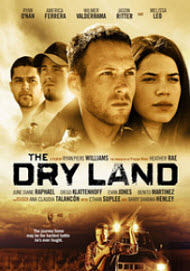


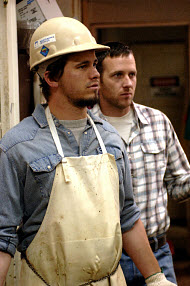
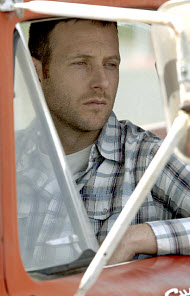
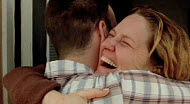

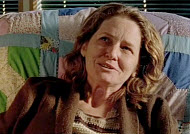
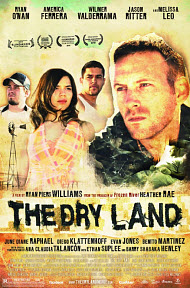
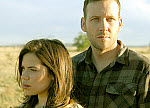
TRUE LOVE—What is true love and how do you know when you have found it? Answer
Why does God allow innocent people to suffer? Answer
What about the issue of suffering? Doesn’t this prove that there is no God and that we are on our own? Answer
Does God feel our pain? Answer
ORIGIN OF BAD—How did bad things come about? Answer
Did God make the world the way it is now? What kind of world would you create? Answer
ANXIETY, worry and fear—What does the Bible say? Answer
DEPRESSION—Are there biblical examples of depression and how to deal with it? Answer
What should a Christian do if overwhelmed with depression? Answer
Physical causes of depression—and its treatment (see: WebMD Depression Heath Center)
Post-Traumatic Stress Disorder (PTSD) (WebMD)
Anxiety & Panic Disorders Health Center (WebMD)
Stress Management Health Center (WebMD)
War in the Bible
What is the Biblical perspective on war? Answer
IRAQ—What is the significance of Iraq in the Bible? Answer
TERRORIST REVENGE—Love replaces hatred—former Israeli soldier and an ex-PLO fighter prove peace is possible-but only with Jesus
| Featuring |
|---|
| America Ferrera (Sarah)—“The Sisterhood of the Traveling Pants, Wilmer Valderrama (Raymond Gonzales), Ethan Suplee (Jack), Jason Ritter (Michael), Melissa Leo (Martha), June Diane Raphael (Susie), Sasha Spielberg (Sally), See all » |
| Director |
|
Ryan Piers Williams |
| Producer |
| Maya Entertainment, Take Fountain Productions, Besito Films, Sergio Aguero, America Ferrera, See all » |
| Distributor |
| Freestyle Releasing |
Director Ryan Piers Williams adamantly denies that he set out to push a political agenda with his film debut, “The Dry Land,” the story of a US soldier returning home from war and the challenges he faces in adjusting to civilian life after a long and dangerous deployment in Iraq.
“Rather than use the soldier as a political statement, I am trying to portray the soldier on a basic, human level,” Williams has said of his film which will undoubtedly be compared to more recent cinematic portrayals of the war in Iraq such as “Stop-Loss,” “In the Valley of Elah,” “The Messenger,” and the Academy-Award winning “The Hurt Locker.” Instead of using his film as a political forum, either for or against the war, Williams wants to remind its viewers that we are still at war, and “there are men and women that are having these intense experiences.”
The soldier in this case is James (Ryan O’nan) who has returned to his Texas home from a deployment in Iraq. As he attempts to readjust to post-war life, he deals with the challenges of finding a job, reconnecting with his wife Sarah (America Ferrera) and the pestering questions about his war experience, of which he doesn’t answer, partly because he doesn’t want to, but mostly because he can’t remember.
As James slowly tries to transition back into a life of normalcy, it becomes clear to all around him that he is not the same James. He is quiet, moody and prone to sudden, violent outbursts. A military psychologist determines that he is demonstrating clear indications of Post Traumatic Stress Disorder (PTSD).
At the heart of his inability to cope with post-war life, James has a nagging memory of a traumatic event that occurred during his time in Iraq, an event like puzzle-pieces in his mind that he just can’t put together to frame the whole picture. To solve the puzzle, he asks for the help of Raymond (Wilmer Vaderrama), a friend and fellow soldier from his unit. Though Raymond feels James would be best off letting the memory lie dormant, he does agree to go with him on a trip to the Walter Reed Army Medical Center to visit another soldier from their unit.
The way PTSD effects James and tears apart his family is the focus of “The Dry Land.” According to Army statistics, the instances of US Army soldiers attempting suicide or inflicting injury upon themselves has increased dramatically in the years since the start of the Iraq war, some estimates indicate that “every day five US soldiers try to kill themselves.” These numbers can be mostly attributed to symptoms of PTSD. As James goes deeper and deeper into a pit of despair, we see the personal tragedy the film is depicting that is far too often the reality of real life soldiers returning home from war.
Though “The Dry Land” does deal with mature thematic material and involves frank discussions about the realities of war, it does stay true to focusing solely on James’ current ordeal by never flashing back to the war itself. By staying rooted in the present, it avoids the grim spectacle and violent depiction of war often seen in films of this genre. The movie does include the usual profanity associated with soldiers retelling their war exploits, and there is some candid sexual dialogue. In addition, there are a couple of suggestive sex scenes, one of which includes nudity; a second borders on being violent and non-consensual.
Those looking for an uplifting, noble depiction of a former US soldier, well you won’t find it here. The film is very dark and delves into some very murky waters surrounding James’ world collapsing around him, as he spirals downward further and further in his depressed state. Additionally, there is a scene in a slaughter house (early in the film) where there is an actual depiction of a cow getting “stunned” and eviscerated. The scene is as graphic as it was stunning, and no less than half-a-dozen viewers walked out of the theater shortly after the scene ended and the cow stopped bleeding.
The performances all around are compelling, however Ryan O’nan definitely stands out in the lead role, as we watch James slowly unravel and destroy everything and everyone around him. Ferrera, Valderrama, and Jason Ritter are also quite good in their supporting roles.
“The Dry Land” does add a new and credible voice to the cinematic battlegrounds of war and post-war movies, and a much needed perspective on soldiers picking up the pieces of their lives after war. James is another in a long list of cinematic soldiers that include the likes of Col. Walter Kurtz, Luke Martin and Ron Kovic, all of whom dealt with their own symptoms of PTSD, before doctors had a name for it.
“The Dry Land” is rated R for pervasive language, sexual content and disturbing violent situations—and has a running time of 92 minutes.
Violence: Moderate / Profanity: Heavy / Sex/Nudity: Moderate
See list of Relevant Issues—questions-and-answers.


PLEASE share your observations and insights to be posted here.
